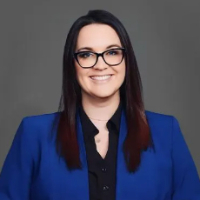 Manville Criminal Lawyers, Rhode Island
Manville Criminal Lawyers, Rhode Island
Sponsored Law Firm
-
 x
x

Click For More Info:
-
Botelho Law Group
901 Eastern Ave Suite 2 Fall River, MA 02723» view mapCriminal Defense Law Fall River Lawyers
At the Botelho Law Group we have several attorneys, with different specializations; to help your case’s individual needs.
800-229-5331
Sponsored Lawyers
1-10 of 23 matches
Bankruptcy & Debt, Criminal, Estate, Divorce & Family Law, Accident & Injury
Since 1982, Attorney Graham has represented clients in many diverse areas of the law. He has represented hundreds of clients in the area of consumer bankruptcy law. In addition, Attorney Graham has represented clients in family court, in criminal matters, in civil matters [especially defending clients being sued for debts in District Court, Superior Court and US District Court], in probate matters and for personal injury cases. Attorney Graham graduated from RI College in 1979 with a BA in History and Political Science, and received his JD from the University of Tulsa College of Law in 1982. He has practiced in Oklahoma, Massachusetts and Rhode Island. We take a personal, caring approach with our clients who are not just treated as a file, but as an individual person.
(more)Bankruptcy & Debt, Immigration, Criminal, Estate, Divorce & Family Law
At the Botelho Law Group we have different attorneys, with different specializations; to help your case is individual needs. When choosing a lawyer or law firm, one size does not fit all, for this reason, we employ a number of attorneys and legal professionals who are equipped to handle any situation that may arise. Many legal issues that arise for our clients have overlapping matters in different Areas Of Law. Maybe during your Divorce, it would be better if you filed Bankruptcy to handle your financial situations; in a case such as this, we can service all your needs. It’s this type of full-service that allows us to best represent our clients and all their legal needs.
(more)DUI-DWI, Domestic Violence & Neglect, , Firearms, Criminal
My name is Tom Thomasian and I have dedicated my career to practicing criminal defense law in Rhode Island. I did not start out as a private RI defense lawyer but rather as an attorney for the Public Defender’s Office. It was there that I learned I could be a voice for the voiceless. Being a criminal lawyer is about making a system that is overwhelmingly stacked against you, hear what you have to say. It’s about guaranteeing your rights won’t be violated. No person should ever feel bullied by a system that is meant to protect them from police misconduct or overzealous prosecution.
(more)Criminal, DUI-DWI, Misdemeanor, Felony, Juvenile Law
Attorney Kara Hoopis Manosh has devoted her career to defending the rights of the accused, handling numerous cases across Rhode Island's courtrooms. Nationally trained by esteemed organizations like The Institute for Criminal Defense Advocacy and The National Association of Criminal Defense Attorneys, she brings exceptional expertise to each case. Manosh earned her LL.M in Trial Advocacy from the California Western School of Law, specializing in Federal Criminal Law. Recognized for her outstanding legal acumen with a "Superb" Avvo Rating of 10.0 and acknowledgments from the SuperLawyers organization, she is committed to justice both inside and outside the courtroom. As an Assistant Public Defender at the Rhode Island Office of the Public Defender, Manosh gained extensive experience across various divisions, including Adult Trial and Newport County. Additionally, she has contributed her expertise to organizations like the Federal Defenders of San Diego, Inc., and the California Innocence Project. Admitted to the bars of Rhode Island and Massachusetts, as well as the United States District Court for the State of Rhode Island and the First Circuit Court of Appeals, Manosh remains actively involved in court panels. She continues to enhance her knowledge through expert training and collaboration in areas such as neuropsychology, DNA analysis, and criminal street gangs. Committed to helping individuals rebuild their lives after the trauma of criminal accusations, Manosh provides tireless advocacy to every client she represents. With a comprehensive understanding of the law and a compassionate approach to client representation, she remains steadfast in her pursuit of justice.
(more)


 Joseph Botelho Fall River, MA
Joseph Botelho Fall River, MA




